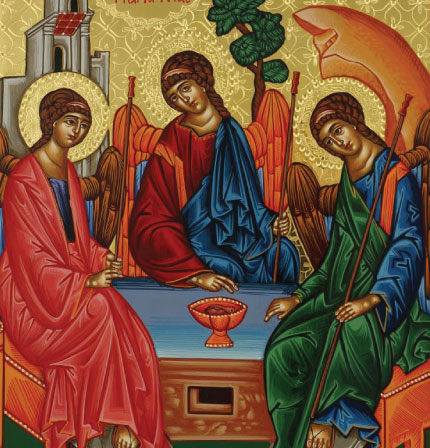“Jesus Christ is the same yesterday, today, and forever.” – Hebrews 13:8
Many who encounter the Orthodox Church for the first time are struck by her beauty, reverence, and unchanging nature. But they often wonder: how is Orthodoxy different from other Christian groups? Isn’t it just another denomination?
The answer is both simple and profound: Orthodox Christianity is not a denomination. It is the original Church.
1. Apostolic Continuity
The Orthodox Church is the one, holy, catholic, and apostolic Church founded by Christ and His Apostles. She has preserved the faith “once for all delivered to the saints” (Jude 1:3) without alteration or innovation for over 2,000 years.
Unlike denominations that arose during the Protestant Reformation or later revivals, Orthodoxy did not break off from anything — she is the continuation of the early Church, in both form and content.
2. Worship That Transfigures
Orthodox worship is not designed to entertain or appeal to popular trends. It is liturgical, sacramental, and heavenly — the same essential form of worship used since the first centuries of the Church.
In the Divine Liturgy, heaven and earth meet. As St. John Chrysostom wrote, “The angels minister with us… and the whole sanctuary is filled with the hosts of heaven.”
In contrast, many denominations offer informal or emotional worship focused on preaching or music. The Orthodox Liturgy focuses not on man, but on God — and it culminates in the Eucharist, the true Body and Blood of Christ.
3. The Unchanged Faith
Orthodoxy has never added or subtracted from the core of the Christian faith. We do not follow new teachings, trends, or revisions. The same theology taught by the Fathers of the Church — St. Basil, St. Gregory of Nyssa, St. John of Damascus — is taught today.
In contrast, many denominations have changed positions over time — on sacraments, morality, or even who Christ is. The Orthodox Church remains steadfast, not out of stubbornness, but fidelity.
4. Authority Rooted in Communion
The Orthodox Church has no single earthly head like the Pope of Rome. Her authority is conciliar, rooted in the shared faith of the bishops in communion with one another. This preserves both unity and humility, echoing the model of the Apostles.
5. The Goal: Theosis
Perhaps the greatest difference is this: for Orthodox Christians, salvation is not just going to heaven or being declared righteous. It is becoming one with Christ — what the Fathers call theosis, or deification.
As St. Athanasius said, “God became man so that man might become god.” This is not metaphor, but mystery — the transformation of the whole person by grace, in Christ, through the Holy Spirit.
Orthodoxy is not an alternative. It is the fullness. Come and see — not a new church, but the ancient Church, alive in the modern world.









